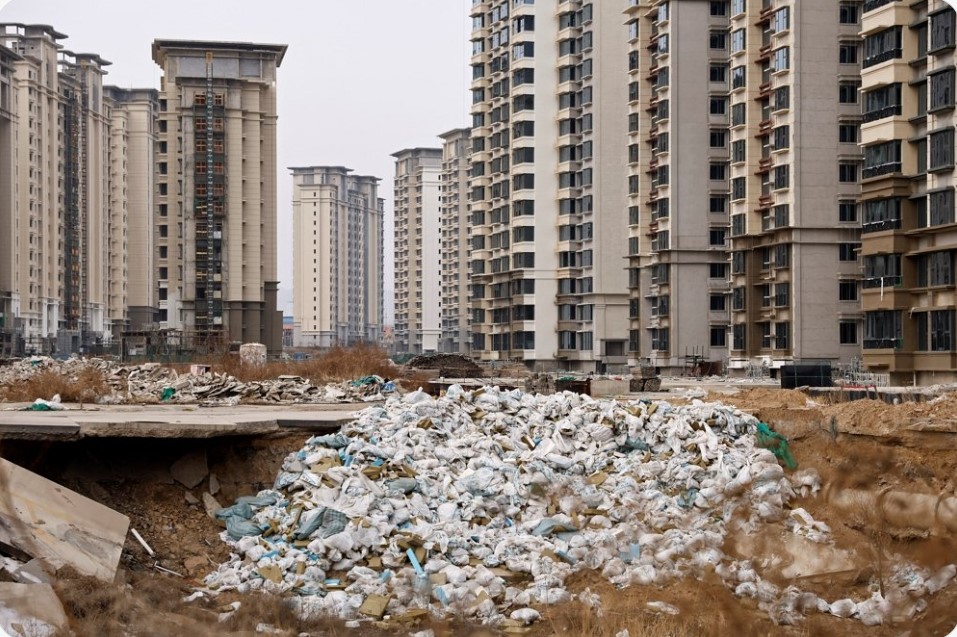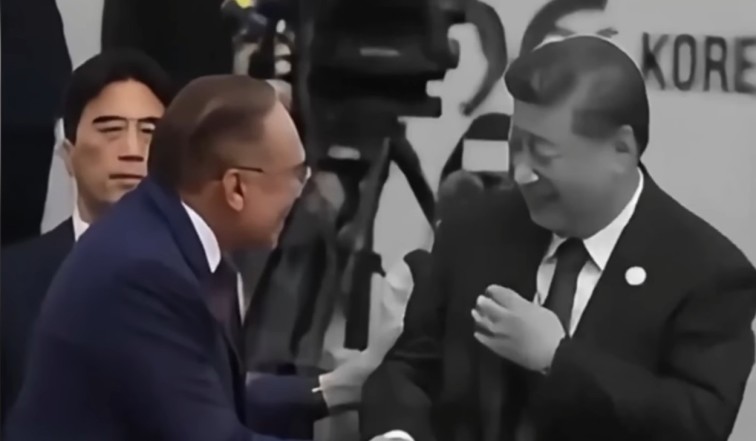Trump is bound to continue and escalate some of the strategies from the 2020 U.S.-China new Cold War in his new term, waging a political war against the CCP. The image shows a file photo of Trump. (Samira Bouaou/Dajiyuan)
[People News]“Within two years, the United States will no longer need China’s rare earths.”
— This statement by US Treasury Secretary Besant in South Korea shocked the world. Is it mere boasting?
I. From Geography to Intelligence: America’s Dual Breakthrough
Indeed, the rare earth war once gave the United States a heavy blow. Yet, within 48 hours after the Trump–Xi meeting, Washington moved almost simultaneously on three fronts:
1. Geopolitical Breakthrough — Accelerating the Arctic Strategy.
Greenland, the ice-covered island, is now viewed by the United States as the “future granary of rare earths.”
Geological surveys show Greenland holds one of the world’s top five rare earth reserves, with high ore quality and low radioactivity.
The Pentagon and the Danish government have signed a memorandum of cooperation, and US companies have already entered the Kvanefjeld mining area in southern Greenland.
A “resource cold war” in the Arctic has quietly begun.
2. Alliance Breakthrough — Strengthening the Asia-Pacific Mining Triangle.
From Tokyo to Canberra, the US-Japan-Australia rare earth alliance built during the Trump administration is entering implementation.
Australia supplies the ore, Japan refines it, and the United States creates the market.
With Greenland serving as a northern pivot, this arc stretching from the Arctic to the South Pacific is becoming the “energy Great Wall” of the free world.
3. Intelligence Breakthrough — A Scientific Advance That May Rewrite the World.
Geopolitics matters less than intellect-politics. Ultimately, geopolitical contests depend on a battle of useful knowledge.
A research team at the University of Texas at Austin announced they had developed a rare-earth separation technology based on artificial membrane channels.
This “intelligent channel,” inspired by biological cell membranes, can precisely identify and filter rare-earth ions.
Traditional refining requires hundreds of chemical extraction steps — time-consuming, polluting, and costly.
The new technology, using ion size and charge recognition, can complete the same separation within hours, increasing efficiency dozens of times.
Old Era: Chemical extraction → “alchemy-style” operations, hundreds of steps.
New Era: Artificial membrane channels → “neural-network-style” separation, completed in one go.
In the old era, humans extracted rare earths from ore like alchemists groping through fog — hundreds of processes, hundreds of reagents, expensive and filthy.
In the new era, scientists have created a “living membrane” that can recognize the “personality” of elements — allowing the desired ions to pass while rejecting the rest.
In mere hours, it accomplishes what once took days and nights.
This marks a leap from alchemy to living intelligence, and from a chemical civilization to a bio-intelligent one.
Nature has hailed this achievement as “a potentially disruptive innovation capable of reshaping global supply chains.”
II. The Power of “Useful Knowledge”: The True Engine of Civilizational Transformation
Economic historian Joel Mokyr once observed:“The true driver of growth is not capital or resources, but the accumulation and diffusion of useful knowledge.”
“Useful knowledge” refers to knowledge that can be absorbed by institutions, transformed by markets, and amplified by technology.
It is not only a scientific discovery, but also a civilizational capacity for growth.
In the past, China won the rare-earth battle through resources and scale.
Now, the United States and its allies are counterattacking with useful knowledge and alliances.
When artificial membrane-channel technology emerged, it triggered not only a technological revolution but a restructuring of global power:
-
Resources are no longer the only barrier;
-
Technology turns raw materials into replaceable commodities;
-
Knowledge becomes the true rare earth.
This is the core logic of civilizational growth: the shift from a resource civilization to a knowledge civilization.
III. The End of Geopolitics: Rare Earths No Longer “Rare”
Rare earths are “rare” not because they are scarce, but because they are hard to refine, hard to replace, and hard to recycle.
But once breakthroughs occur in membrane separation, recycling, and substitute-material technologies, rare earths will no longer be rare, and their geopolitical magic will vanish.
Greenland, Canada, Australia, and Nevada — all once-marginalized resource regions — may reemerge onto the world stage through technological empowerment.
This signals a new paradigm: future competition will not hinge on who owns more mines, but on who holds smarter knowledge structures.
IV. From the “Resource Trap” to “Knowledge Freedom”
China’s dominance in rare earths has been an industrial-era trump card.
But it represents a model of growth dependent on external forces.
When that model collides with a civilization of endogenous innovation, its advantage proves limited — and inevitably, over time, will be replaced.
In other words, what determines the outcome of the rare-earth war is not who has more natural deposits, but who possesses a market of ideas.
V. Conclusion: Finding Certainty of Civilizational Growth in an Uncertain World
Perhaps we cannot yet be certain that the United States will, within two years, truly free itself from dependence on China’s rare earths in material terms.
But even in an uncertain world, we can see one certainty:
The powerful force of civilizational growth.
Thus, the strategic importance of rare earths as a natural resource will continue to decline — because human civilization is breaking free from resource dependence through knowledge.
The ice fields of Greenland and the laboratories of Texas both point in the same direction:
The source of power is shifting from underground resources to the minds above ground.
As I often say:“The true transformation of civilization lies not in ores, but in intellect — not in the abundance of the surface, but in the freedom of thought.”
The final outcome of the rare-earth war may not rest on who wins or loses,
but on who can better safeguard the civilizational leap and growth transformation —from resources to knowledge.△











News magazine bootstrap themes!
I like this themes, fast loading and look profesional
Thank you Carlos!
You're welcome!
Please support me with give positive rating!
Yes Sure!